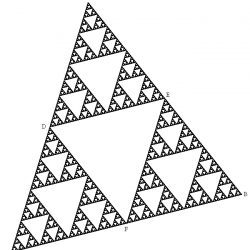 The term hermeneutics must be understood in the context of philosophy, but also in theology and in those forms of knowledge in which it is necessary to interpret a text. The word hermeneutics is of Greek origin and literally means to clarify and translate. If we apply this idea to a text, hermeneutics is the process of clarifying a text and therefore an interpretation of its content.
The term hermeneutics must be understood in the context of philosophy, but also in theology and in those forms of knowledge in which it is necessary to interpret a text. The word hermeneutics is of Greek origin and literally means to clarify and translate. If we apply this idea to a text, hermeneutics is the process of clarifying a text and therefore an interpretation of its content.
The art of interpreting texts
If we think of certain philosophical texts of antiquity or of the sacred writings, a problem arises: how they should be interpreted. In a succinct way there are two ways of understanding hermeneutics as a discipline that interprets a text:
1) a literal interpretation based on the analysis of the words and their meaning and
2) a doctrinal interpretation, that is, from a conception of the world (for example, Christianity) the content of a text is analyzed.
Some scholars consider that the art of interpreting should be done based on prior knowledge of the data (historical, geographical, linguistic data, etc.). Only by knowing the data is it possible to understand its true meaning in a given text.
A hermeneutical analysis allows an author's work to become better known than the author himself knows about it. In this sense, this is possible because hermeneutics as a knowledge technique starts from an element that the author of a work lacks, historical consciousness (there is only historical consciousness if enough time has elapsed to understand something and an author of a text lives immersed in his own time and lacks perspective).
Hermeneutics and the sciences of the spirit
Science can be divided into two large blocks:
1) natural sciences, such as biology or geology and
2) Sciences of the spirit, such as theology, sociology, history or anthropology. The sciences of the spirit have the singularity of being interpretable, since they do not provide simple data, since something more is necessary, to interpret them. And the method to correctly interpret this type of science is the hermeneutical method.

The hermeneutical method starts from the following premises
1) man does not objectively analyze reality but interprets it,
2) There is no definitive truth, since truth is a changing concept and subject to historical circumstances or of any other nature and
3) there is a permanent interaction between the particular data of an investigation and the whole (let's think of a biblical passage, which is only understood from the global Christian perspective).
Photos: iStock - Steve Debenport / gldburger









